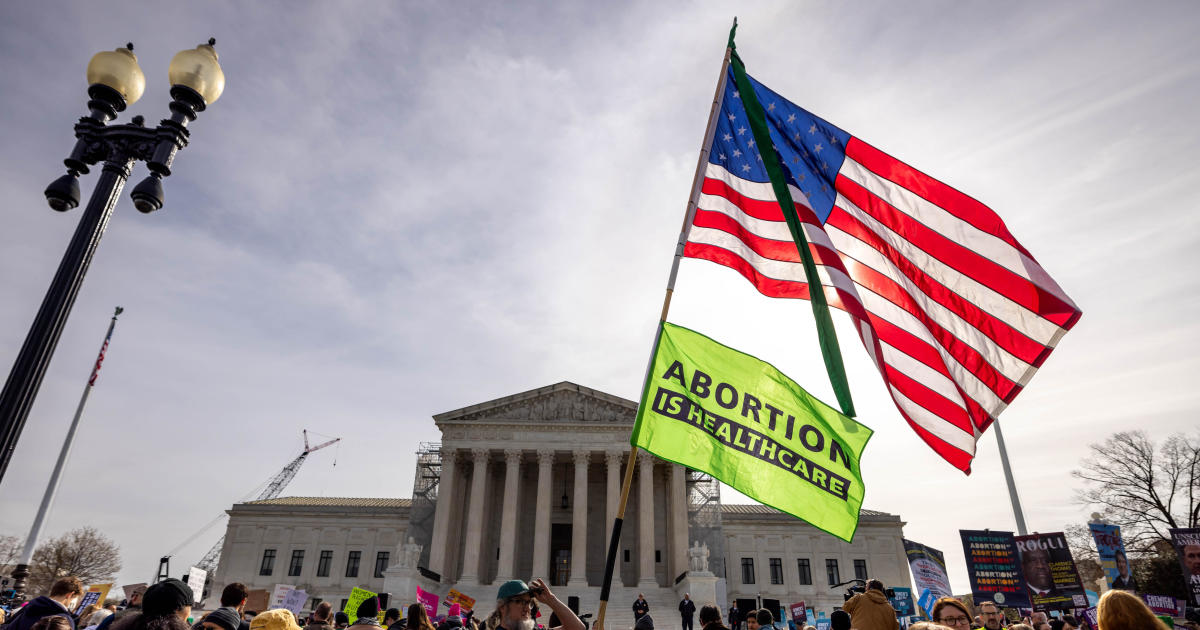
Supreme Court to consider clash of Idaho abortion ban with federal law for emergency care
CBSN
Washington — Less than two years after the Supreme Court returned abortion policy to the states by overturning Roe v. Wade, the justices will hear the second of two cases in a month's span that involve efforts to restrict access to the procedure.
The latest dispute to be argued Wednesday involves the interplay between Idaho's near-total ban on abortion and a federal law that requires Medicare-participating hospitals to provide necessary stabilizing treatment, including emergency abortion care, to a mother whose health is at serious risk.
Idaho's law went into effect after the Supreme Court overturned Roe in June 2022 and makes it a felony for physicians to perform most abortions, except when necessary to save the life of the mother. But the Biden administration sued the state in August 2022, arguing its law is unconstitutional and preempted by the Emergency Medical Treatment and Labor Act, or EMTALA.

More than 2 million federal employees face a looming deadline: By midnight on Thursday, they must decide whether to accept a "deferred resignation" offer from the Trump administration. If workers accept, according to a White House plan, they would continue getting paid through September but would be excused from reporting for duty. But if they opt to keep their jobs, they could get fired.

More employees of the Environmental Protection Agency were informed Wednesday that their jobs appear in doubt. Senior leadership at the EPA held an all-staff meeting to tell individuals that President Trump's executive order, "Ending Radical and Wasteful Government DEI Programs and Preferencing," which was responsible for the closure of the agency's Diversity, Equity, and Inclusion office, will likely lead to the shuttering of the Office of Environmental Justice and External Civil Rights as well.

In her first hours as attorney general, Pam Bondi issued a broad slate of directives that included a Justice Department review of the prosecutions of President Trump, a reorientation of department work to focus on harsher punishments, actions punishing so-called "sanctuary" cities and an end to diversity initiatives at the department.










